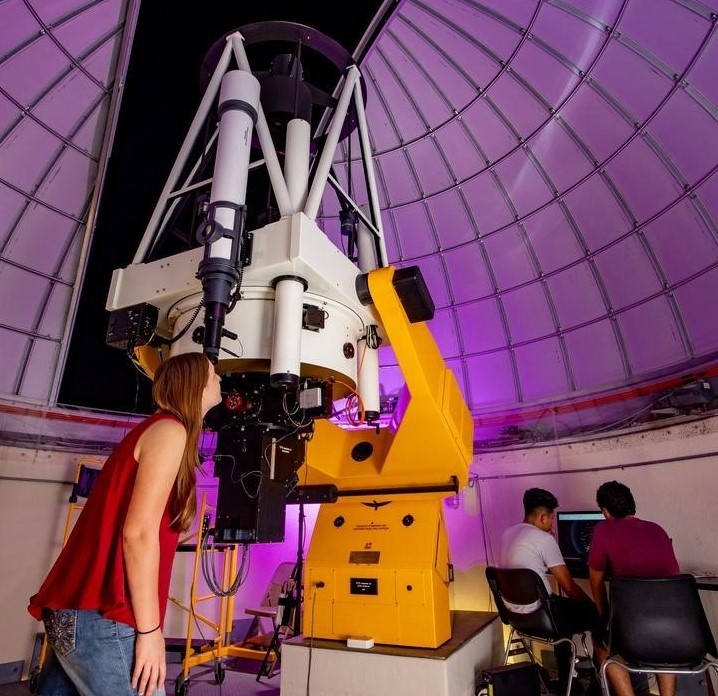Galactic Cosmic-Ray Modulation Using A Solar Minimum MHD Heliosphere: A Stochastic Particle Approach
Document Type
Article
Publication Title
The Astrophysical Journal
Abstract
An example of Galactic cosmic-ray modulation in a fully three-dimensional heliosphere is presented here. We use a stochastic particle method to solve for modulation without requiring symmetric boundaries or fields. We include all typical modulation terms, including full three-dimensional drift. We have applied this to an MHD heliosphere appropriate for solar minimum conditions. This field includes nonradial solar wind velocity components, as well as a built-in nonspherical termination shock. Parameters that are of interest in modulation can be analyzed in detail, particularly the momentum change of cosmic rays during their transport through the heliosphere. We show radial profiles of modulation at different energies, latitude, and longitude, as well as the more traditional modulated spectra at various locations. Finally, we are able to show in detail where particles at a particular energy and location gain and lose energy. We are able to conclude that the radial profiles of modulation are strongly dependent on the latitudinal angle with respect to the stagnation point. We see that modulation of GCRs near the stagnation point takes place mostly upstream of the shock but that modulation continues far outside the shock as the stochastic particles will random walk across the shock several times before entering our observation region. The modulation profiles remain similar with differing longitude, although the exact shape of the radial profile and spectra are strongly dependent on the termination shock location. Cosmic-ray intensity at high energies can be higher than the ISM intensity, while at low energies cosmic rays still experience solar modulation. The termination shock and heliosheath regions were important to modulation in the outer heliosphere. Finally, the sign of the latitudinal gradient is not a simple function of the qA direction, in general.
DOI
10.1086/496965
Publication Date
12-1-2005
Recommended Citation
Ball, Bryan M.; Zhang, Ming; Rassoul, Hamid K.; and Linde, Timur J., "Galactic Cosmic-Ray Modulation Using A Solar Minimum MHD Heliosphere: A Stochastic Particle Approach" (2005). Aerospace, Physics, and Space Science Faculty Publications. 362.
https://repository.fit.edu/apss_faculty/362


